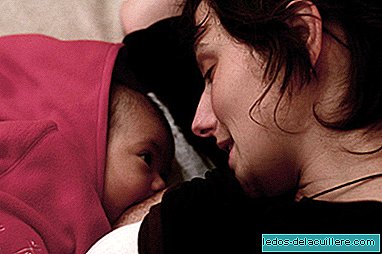
'My son (or my daughter) is in a difficult age', is a phrase that I usually hear from parents who have children between 8/9 and 12/13. Logically, a few years later the worries will be greater, but when what many have come to call 'age of innocence' is over, the parents are misplaced.
Actually, if we contemplate our own emotions and reactions in the relationship with children, we will realize that there are 'many ages' that seem difficult to us. I think this happens for two reasons: the lack of social support to raise and educate, and our disconnection with the biological and psychological processes of our own children.
But when pre-adolescence arrives, everything acquires other nuances: it is not (only) that we believe it will be more or less difficult. Above all, we don't usually accept easily that our son will no longer be a small child., and that from that moment family education must compete with the opinions and ideas of their 'equals'.
We often hear about the physical changes that anticipate or accompany puberty, but who prepares us for social, emotional, which will affect family relationships?
Are children more difficult when they grow up?
Let's say that being 'more difficult' is not a direct consequence of being older, and on the other hand it is not good for us to label children, because this conditions our relationships and the good family climate.
Parents should try to 'glimpse' what is happening inside the children's body: growth hormones play their part. The changes are going to happen also outside, although this is easier to see.
That our son is more sullen or 'responded' has to do with the role of hormones in emotions, and that he needs his own spaces or prefers to be with his friends rather than with us,… well, this has all happened to us Right? And that's not why we have neglected the family.
What is difficult is to admit that our role has been diluted, that they can stay with their friends to take a 'little turn alone', and that they argue their decisions so that it is almost impossible to refute them
We have to admit it: a new stage begins, and for us it will also be nice to accompany them in it, they don't need our company so much at night, but we do listen with empathy when they want to share their problems or experiences with us. We no longer have to worry so much about taking them to fun activities that we more or less decide, but we can be aware (from a distance) that the changes that happen are normal, and be willing to help without judging.
I have two good news: the children continue to accept the guidance of their parents even during adolescence (even if they don't prove it). And on the other hand, it is healthy that they initiate that progressive 'separation' of the family, that they think on their own and that they face their parents (as long as communication and family norms are maintained), that means that they are equipping themselves with very valid tools to function autonomously in this world.
Attitudes of parents who help
Children are first babies, go through their early childhood, are on their way to adolescence, and then approach adulthood. When you are a father you live differently, but still, it helps to use our memory, because remembering our feelings, our experiences and our perception of the world when we were the age of our children, we find it easier to understand them.
'Listen to your children!', it is very important that we do it, always !, parents have a tendency to talk, to want to be taken into account, to give advice ... But if we don't listen to them, they won't talk to us, and this does not suit us when our children are pre-adolescents, at these ages they are no longer so spontaneous in their conversations with us, if we also disregard their interests and needs, if we do not let them finish sentences, if we reprimand them without motives, let's say we are complicating the relationship with the sole pretext of imposing our criteria undercover.
The children accept us better if we don't judge, we must strive to achieve it, another thing is that we give our opinion or express our values ... but not always when they tell us problems with friends or difficulties in school they want us to intervene. And if we must do it because conflicts have arisen, let's do it from common sense, respect and good education.
Let's avoid discussions without a clear ending: If there is a limit that cannot be crossed and our son insists, it is not necessary that we hold ourselves unlimitedly, we can simply be blunt (with this we will not harm them).
Now (even more than when they are small) it is important to meet friends and parents of friends. It is not worth that 'my son goes to the Institute and I already trust him, I do not need to know who he is going with ...' The statement could be valid with reservations from the age of 17, not before. It is true that if we give them confidence and respect their rhythms, they return us responsibility, but 'from there to not worry' ...
I know from experience that it is a very big change for us (for them too, that is why it is so important that we accompany you from the understanding). It's hard to let them prepare to fly alone, but it still costs more to be told, 'Mom, I don't want you to be sad, but I prefer to spend the afternoon with my friends, I don't need you to invite me to an ice cream today, thanks anyway '.
This phrase is from my son, he is only nine years old, but he is not a baby, yet I can negotiate with him to continue doing family activities with some frequency, and of course he is not yet old (he is far away) to decide schedules. Our work in the previous years will pay off, now we have to prepare to adapt our role as parents.
I want to remind you before finishing that they still need us, and that we must still be willing to guide them (or educate them, if you want), issues such as drugs (or other risky behaviors), and sexuality, should still be in our conversations.












